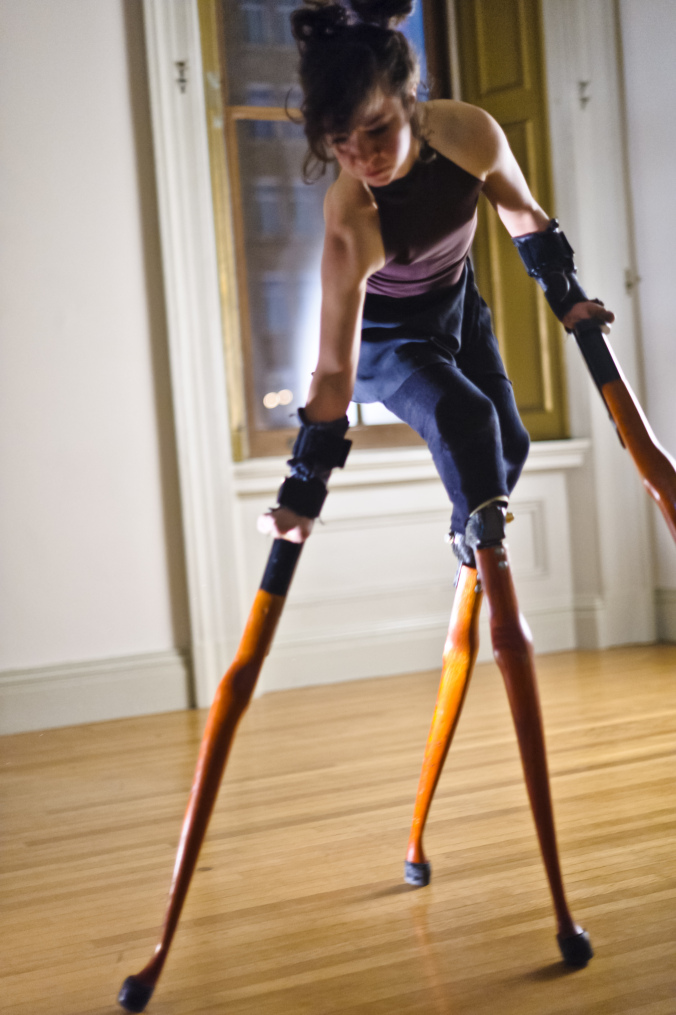
As healers we often encourage our patients to listen to the wisdom of their bodies. Yet even if we accept the idea that the body is wise and that we should listen to it, many of us have grown up learning that our bodies must be controlled, ignored, or even rejected–not listened to.
The pressure to look a certain way can hijack even the most spirited girl’s relationship to her own root. The pressure to have certain sexual attitudes can cause us to numb out to our own authentic sexuality. Disability or chronic pain can make us feel at odds with our bodies. If there is abuse and our boundaries are energetically or physically crossed, many of us cope through dissociating from the body altogether–losing touch with the sensations in our bodies that tell us to say “NO”, the sensations that tell us to say “YES”. Even the sensations of real physical hunger and thirst can be difficult to detect from a dissociated place. We don’t eat enough, or we eat too much, we self harm or turn to addiction because we can’t hear ourselves, because at some point in time–sometimes for long stretches of time–it was not safe to listen.
I spent most of 17 years in therapy and had made a huge amount of progress in learning to listen to myself before I began to really encounter the truth of my body, to recognize how profoundly out of touch I was with my body’s truth, with my body’s “Yes”, with my body’s “No”. What I realized then was that I was constantly ignoring my body’s signals. I had been living in a state of nervous system overwhelm and accepting it as normal. Nervous system overwhelm was as status quo to me as the air I breathed.
It was not until my first year of studying Chinese medicine–through qigong and acupuncture treatments–that I began the process of noticing and shifting my relationship to my body. On the third day of my first qigong retreat, I found myself taking a forcibly deep breath and sobbing at the end of a qigong move that opened my diaphragm. Needles in the painful places set me to rocking on the acupuncture table. But it wasn’t until my first Shan Ren Dao retreat that I discovered the truth that my body–in its wisdom– had expertly and quietly contained what then felt like an overpowering charge of terror. And it wasn’t until my first TRE (body-centered tension and trauma release) class that I learned how my body actually needed to move in big and sometimes convulsive ways to release this charge.
But the process of learning to trust my body came through listening to the still, small voice–as my body tremored–that said “Yes, more of this” or “Stop now. That’s enough”. It took me some time to learn how to listen, but listening to this voice was as important to my healing as allowing my body to release.
The gift of doing any kind of therapeutic work–but especially body-centered therapy (like TRE or Hakomi or Somatic Experiencing)–is that we have to be engaged. We have to be present with ourselves, or what comes up can’t be integrated. In essence, we have to befriend or even re-parent ourselves through it. Often we need containment from a skilled practitioner–who knows how to read the subtle cues that precede overwhelmed states like freeze or dissociation–until we can start to respond to our own subtle cues and build a safe container from within. For some of us, this will be the first time we have ever listened so closely to bodies. And when we listen this closely to our bodies, for however long we are able, then little by little we release that which does not serves us. In so doing we uncover the radiance within us that was simply temporarily clouded.
The more I listen to the still small voice within, the louder and more supportive it becomes. Sometimes it begins with a body sensation, a brief feeling of restriction around my heart or a sense of ease and opening. Often that’s all the guidance I need.
For those of us who coped for long periods of time through dissociating, being present with our bodies sometimes means feeling painful emotions–often laced with shame–that we’ve been avoiding. But the truth of it is, when we’re in avoidance of our bodies and the emotions that get stored there, we begin to live our lives hopscotching around them. We end up running ourselves ragged to avoid stillness. And when we avoid the more difficult emotions, we also cut ourselves off from the experience of true joy.
I’m still learning what it means to listen to the wisdom of my body. To eat from genuine hunger, to rest when I’m tired, to listen to the “NO” and the “YES” from deep down inside. Deeper still, I’m learning to move in the world from my feet, from my hips, from my heart–to listen for and even solicit the feedback of body sensations to help me make bigger decisions that I know I shouldn’t make with my mind alone. Because the truth is, our bodies are constantly giving us feedback if we will only listen. If we will only hear that still small voice, if we will only reclaim the territory of our flesh, it will bring us home.